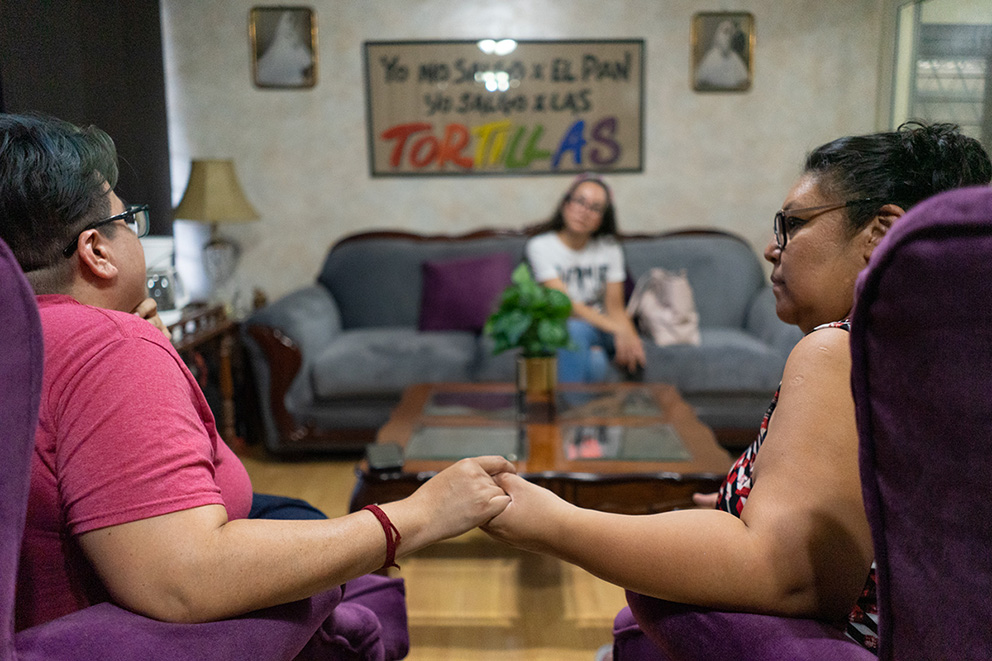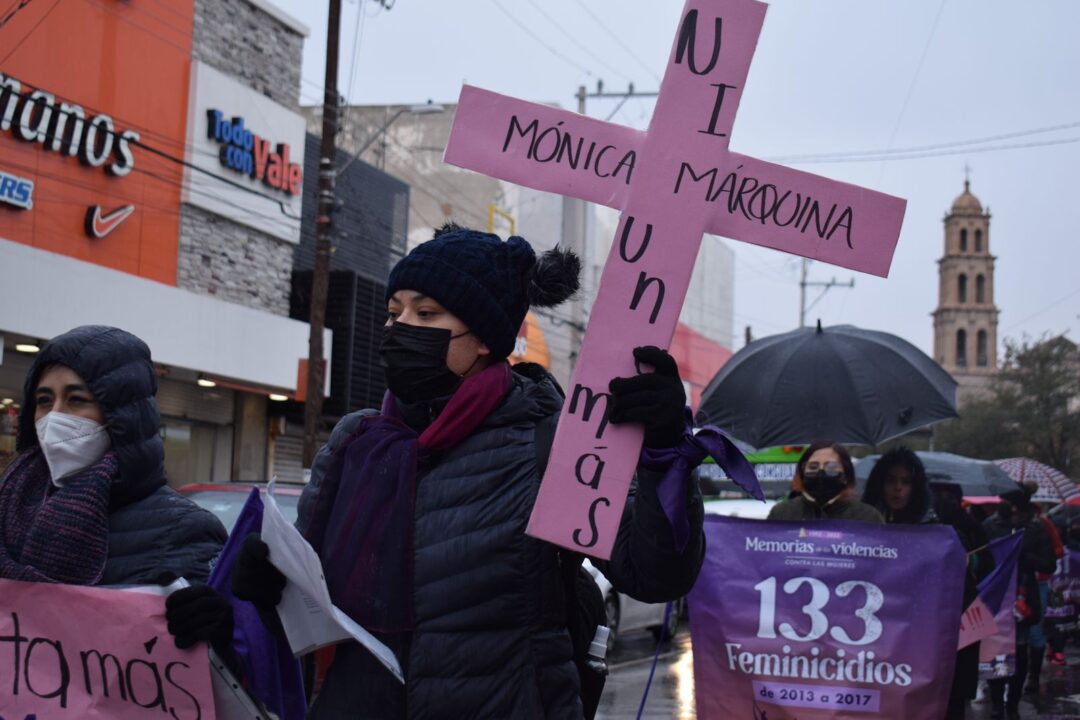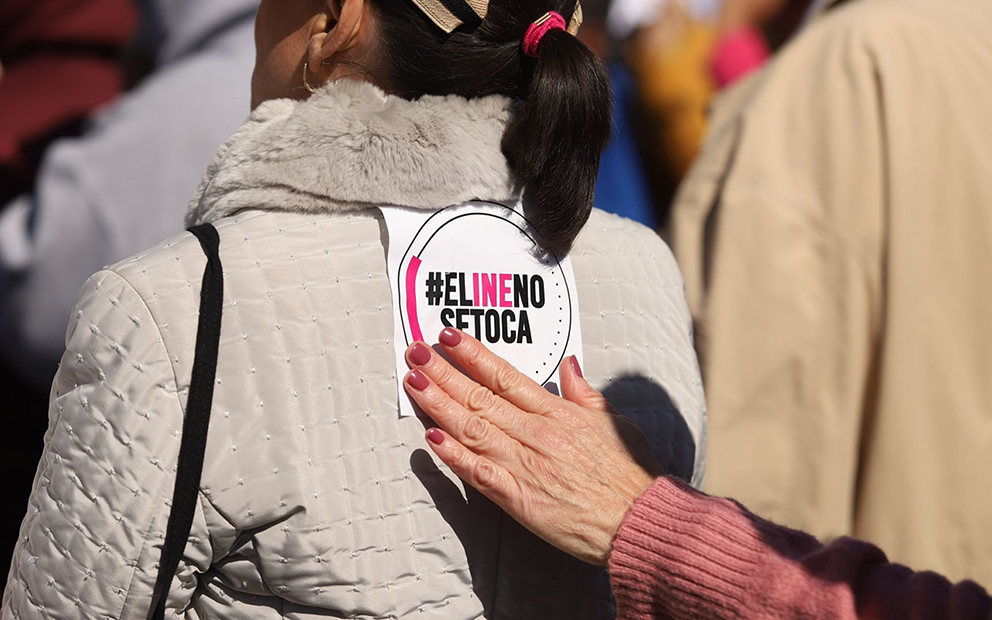Sandra Cardona and Vanessa Jiménez are partners, and together they accompany abortions. In La Abortería, their autonomous abortion space, they offer information and a safe space for people who decide to terminate a pregnancy with pills. Demand on the part of women from the US has been on the rise since the near total abortion ban in Texas.
Text and photos by Isabel Briseño, originally published September 9, 2022.
Translated for Pie de Página in English by Dawn Marie Paley.
MONTERREY, NUEVO LEÓN— “Only you know what’s best for you,” is the motto that welcomes viewers to the Necesito Abortar (I need an abortion) website.
That’s what Sandra Cardona calls the network she created in 2017, and that she represents together with Vanessa Jiménez. The objective of the network is to inform women they are not alone, and protect the right to choose.
The Necesito Abortar network is made up of a group of women who are convinced access to abortion is a right that should be within everyone’s means, no matter what state in México they live in. They provide support during, before and after the abortion process to ensure that it can be experienced as a right, and not as a crime.
Currently, abortion up to 12 weeks is legal in nine of México’s 32 states: México City (2007), Oaxaca (2009), Hidalgo, Veracruz, Colima, North and South Baja California (2021) Sinaloa and Guerrero (2022).
Recently, links with women in the US and throughout the north of Mexico have expanded between women who assist abortions with pills that are carried out according to the procedure outlined by the World Health Organization (WHO).
Since February, Monterrey activists have received more and more calls for help from women in Texas who can’t access abortion in the US. “There used to be two or three a year, now there’s three to five a day, it’s a huge increase,” said Jiménez.
Twenty women in Monterrey offer their time and company by text message, home visit, calls and video calls, to women from México, but also to their neighbours in Texas Louisiana, and Florida, as they encounter difficulties in accessing legal abortion.
La Abortería is a space which responds to the most common questions about safely aborting at home.
“Our network is complete,” said Vanessa, the co-founder. There’s no room for new members of the Necesito Abortar Network, she says, and now new networks which guarantee safe abortions must be created in other neighborhoods and areas, and in every state. Vanessa and Sandra think women should continue to gather where they live and weave support networks that can adapt to the needs of women in each place.
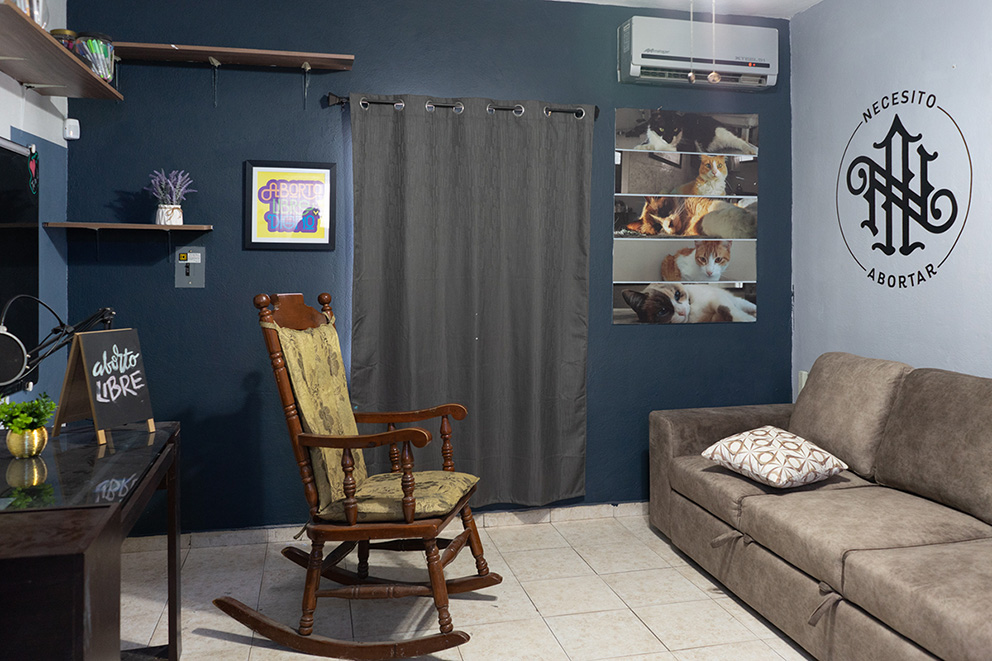
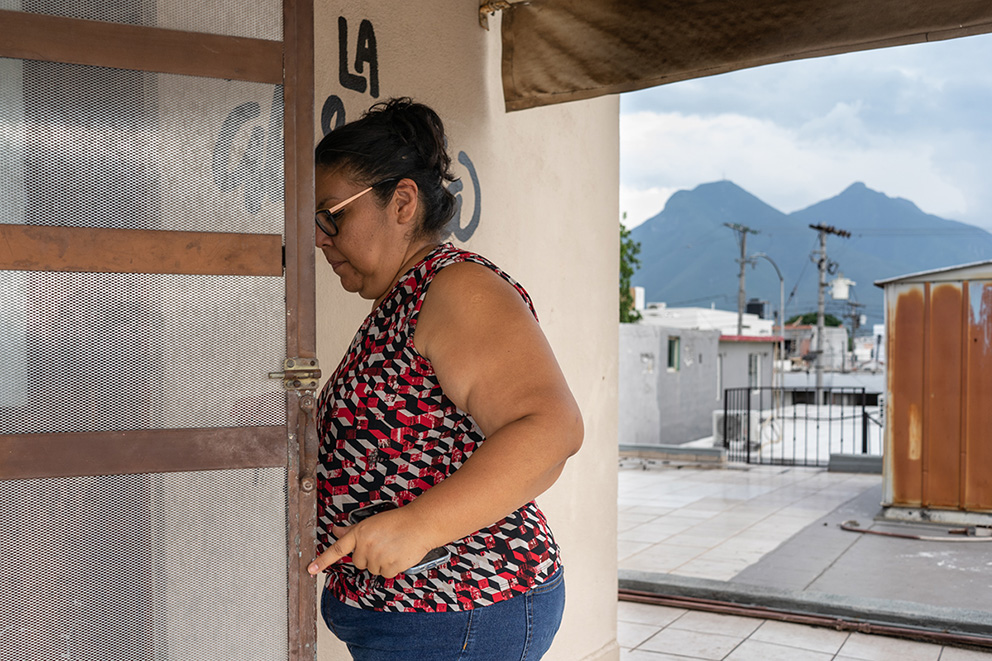
A safe abortion, without stigma
One of Jiménez’s friends had decided to have an abortion, but she was afraid her family would find out, and what they would say to her if they did. Vanessa offered her company and her home so that her friend would feel at ease. “That’s who I got started, sharing what I have,” said the blue-haired woman.
Stigma about abortion is social, and information is key to ending it. “Every abortion should be supported, lifted up and respected in the same way a pregnancy is, it should be respected because whatever the choice is, to have one or not, is a personal decision,” said Jiménez.
“Abortion is an act of love too.”
“Deciding makes us free.”
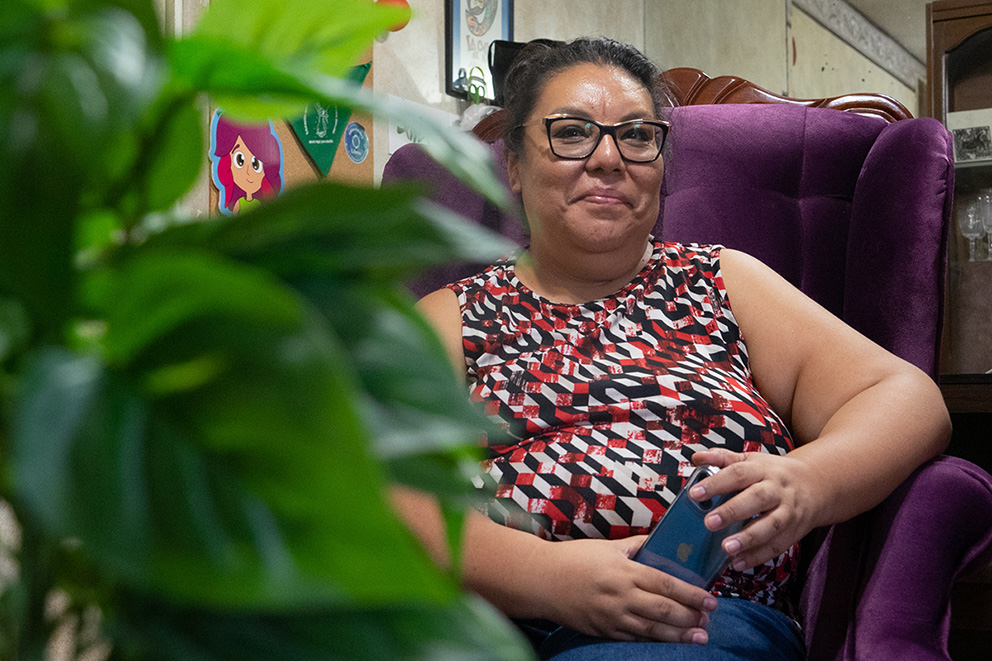
Sandra says the network is growing and spreading; last week she received a call from a woman in Germany seeking information. “She’s going to come to México to have the abortion because her gestation period is farther along,” she said. “When a woman decides to have an abortion, she’s going to do it.”
There’s many doubts. Could I die? Could I bleed out? Could I be sent to jail?
“We need more information,” said Vanessa, as she remembered a woman who she supported online. She had large blood clots, and she said “I think I just lost an ovary.”
“Of course you didn’t” Vanessa told her. But the woman was so afraid, she didn’t believe it. “That’s physically impossible, I don’t need to be a doctor or a nurse to know that, what happens is that we don’t even know our own bodies,” said Jiménez.
The process is so safe, she says that there’s never been a documented case of anyone dying from aborting with pills. Some feel more safe in a clinic, but others do at home. What must be eliminated from the clinics, and from society, is stigma. Not even legalization on a national level will eradicate the stigma with which those who choose not to be mothers face.
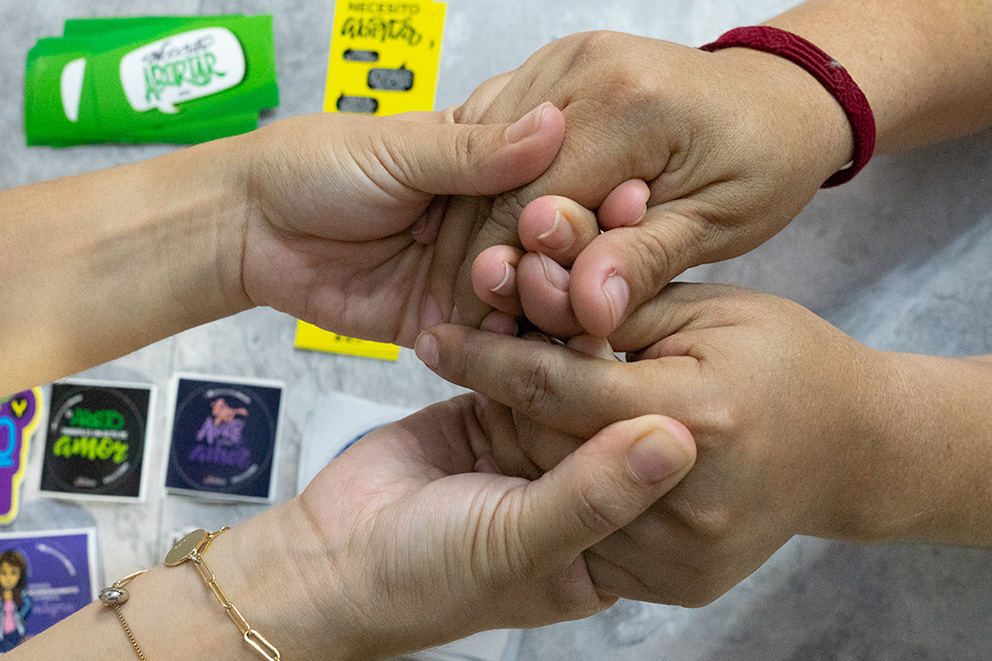
The line between a crime and a right
It’s contradictory: abortion is legal throughout México, but in many states, its still illegal. Nearly every state in the republic now counts with clauses according to which abortion is not considered a crime.
Official Mexican Norm (NOM) 046 guarantees the termination of pregnancy in cases of violence. “A 13 year old girl came, and it surprised me, she said, very confidently, ‘I want this out of me’ and pointed at her stomach,” said Sandra. “Her pregnancy was caused by rape.”
México’s Supreme Court (SCJN) declared the criminalization of abortion unconstitutional in September of 2021. It was considered a historical precedent, as it was the first time that women’s right to choose was centered in a discussion.
La Aborteria, as it’s known, is located in a state in which abortion is only permitted in cases of incest, rape, or when the life of the mother is in danger.
When I asked how Monterrey society reacts to the issue of abortion, the reply was immediate. “Super hypocritical. Women from the PAN (National Action Party, a conservative christian party) have come here, as have women from San Pedro (the richest municipality in México), and they send even more,” said the activist.
“The experience of having an abortion should be lived with love, with tranquility, without fear, safely, and above all, with support.»
It doesn’t matter what state of México you are in, if you aren’t connected to a support network, you can reach out to the activists at La Abortería.
FAQs
These are among the most common questions women who choose to end their pregnancies have:
Can something bad happen to me if I use Misoprostol?
No. If Misoprostol is used correctly, there are no health risks.
Can Misoprostol make me sterile?
No. The correct usage of Misoprostol makes the uterus contract, but it doesn’t impact fertility or the ovaries.
If I already used Misoprostol for an abortion is it dangerous to use it again?
No. The body eliminates Misoprostol the same day it is taken, so it is safe to take as many times as you need to use it. se elimina del cuerpo el mismo día de su consumo, por lo que es seguro usarlo las veces que tú decidas abortar.
How much bedrest do I need after an abortion?
You don’t need any. Resting depends on the possibilities each of us has and how we’re feeling physically. Since Misoprostol leaves the body on the same day it’s taken, its side effects disappear the same day. There shouldn’t be any lingering pain that requires bedrest, unless you choose to take it.
Can I bleed out if I abort at home?
One of the uses of Misoprostol is to prevent hemorrhages, in addition to helping abort. The safe abortion protocol includes a method for measuring blood flow, which allows to distinguish between a normal and abundant flow during and abortion, and a hemorrage. There are certain situations in which a woman could be susceptible to a hemorrhage, that’s why it’s important to contact an acompañante to ensure you have all the information you need.
Why do I need to know how many weeks pregnant I am?
Because it is necessary to ensure the Misoprostol is used correctly, and to increase the effectiveness of the procedure.
Do I need to be lying down the whole time I have an abortion?
No. Misoprostol causes contractions, which will happen no matter what position you are in. You should make yourself as comfortable as possible.
Should I fast before I have an abortion with pills?
No. In addition to the cramps and contractions caused by Misoprostol, vomit and diarrhea are also common. Fasting beforehand means you may feel extremely tired. You can eat what you like, and remember to stay hydrated.
If I end up going to the hospital, will they know I had an abortion?
Yes. But they won’t be able to tell that it was medically induced unless you tell them. Because of how the abortion is produced, in the uterus it appears as a spontaneous abortion.
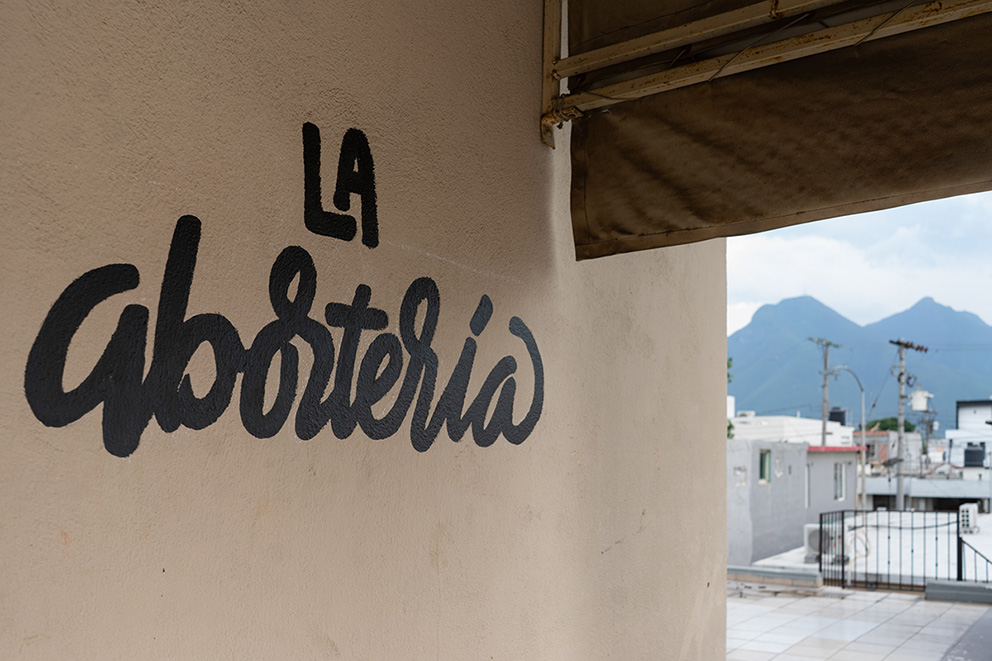
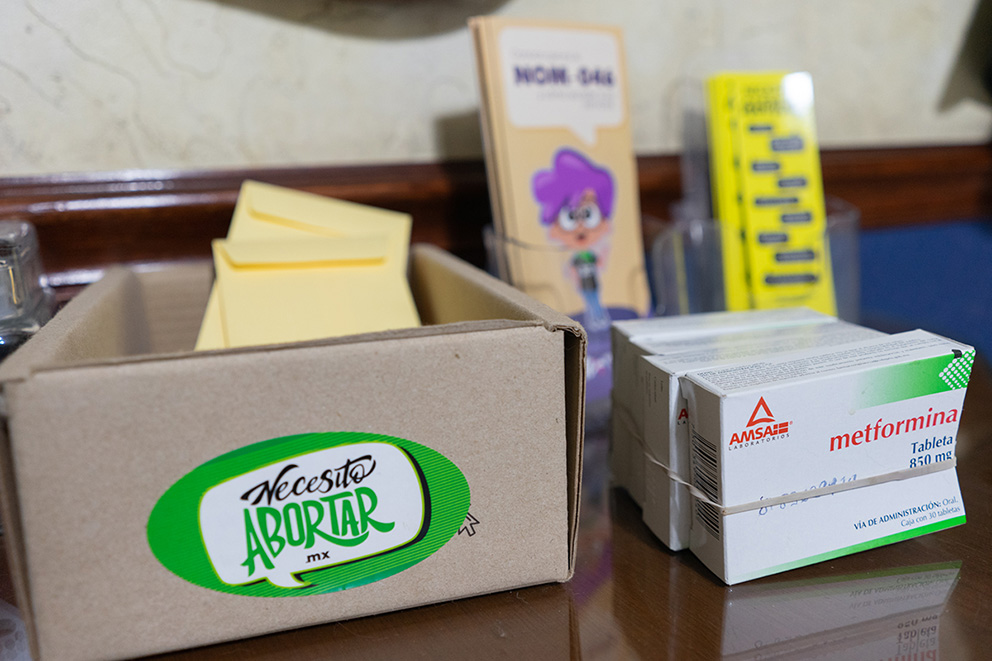
Is Cytotec the only brand name of Misoprostol?
No, Cytotec is a brand owned by Pfizer, but it’s not the only one that works. There are other brands that are more and less known, but equally as effective.
How hard is it to access Misoprostol?
In México Misoprostol is an over the counter medicine, which means it can be sold without a prescription. Sometimes, pharmacists refuse to sell it or demand a prescription, but that shouldn’t happen. If it does, you can purchase the pills in another pharmacy.
I bought pills online. How do I know they’ll work?
You have to be very careful when buying pills online. There are websites that sell pills for abortion that don’t follow the dosage recommended by the World Health Organization. You must be sure the pills you are receiving have not been opened or tampered with and that the name of the laboratory, the name of the medication, and the expiration date are printed on the packaging or blister pack. There’s many scam pages that sell pills that have been opened and are repackaged in plastic bags. Be very careful and ensure you have the right medication. Contact us if you want to learn where to get Misoprostol safely near you.
What happens if I took misoprostol but the pregnancy wasn’t terminated?
You can repeat the process without any problems. Contact us for assistance, and we’ll help you, to the extent possible, resolve your questions about the use of Misoprostol.
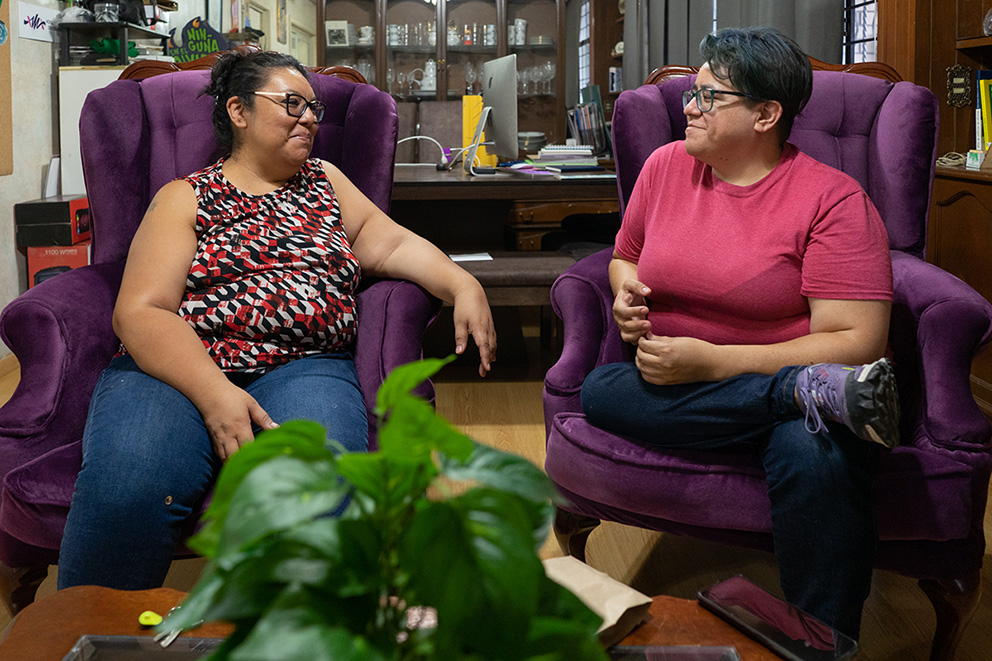
Click here to sign up for Pie de Página’s bi-weekly English newsletter.
Ayúdanos a sostener un periodismo ético y responsable, que sirva para construir mejores sociedades. Patrocina una historia y forma parte de nuestra comunidad.
Dona

